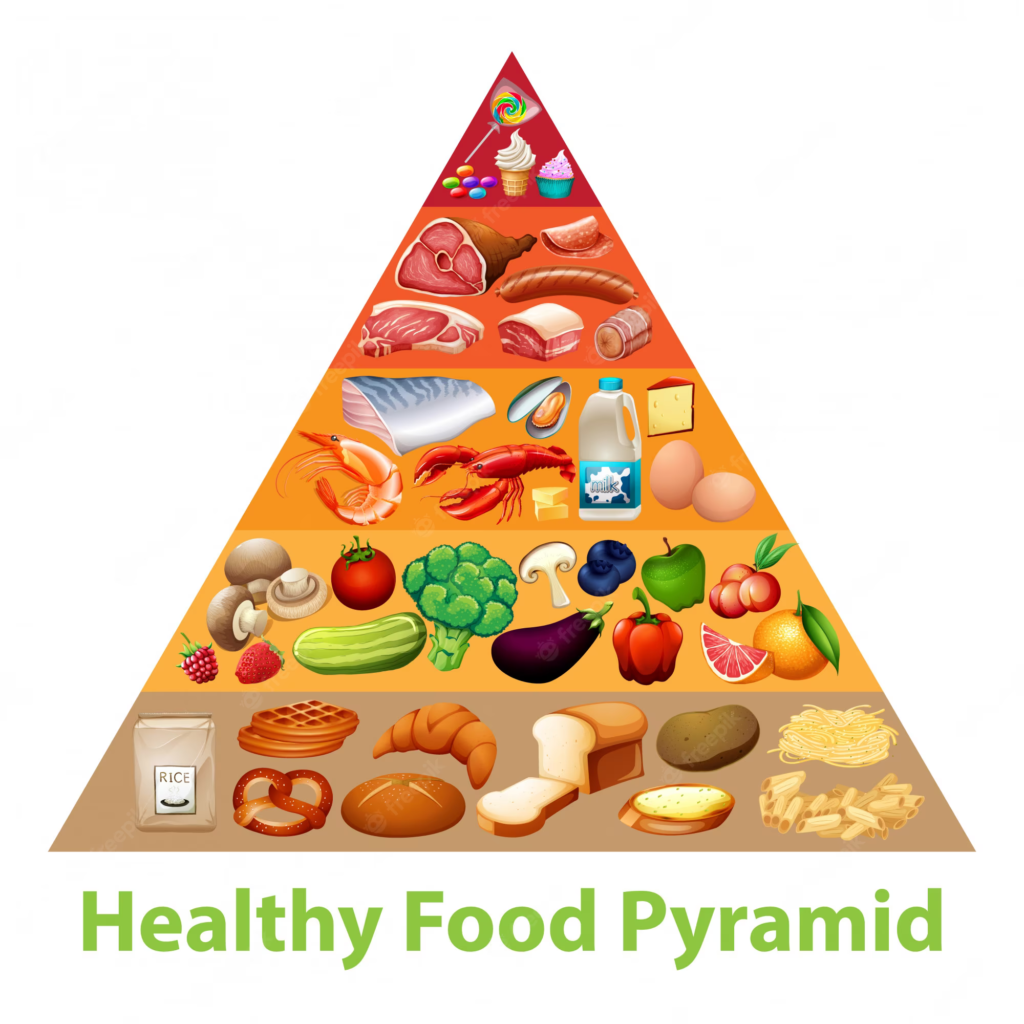Diet alone is not enough to be healthy, you also need to improve your physical activity. In today’s times of excessive competition and changing environment, people care little about their health and have to take into account its consequences in the later stages of life. They easily fall prey to many life-threatening health problems.
In today’s busy world, a healthy lifestyle has become a priority for many people. It not only allows you to maintain good physical condition, but also has a positive effect on our emotional and mental well-being. In this paper, we will look at the various aspects of a healthy lifestyle and find out what benefits come from using this approach on a regular basis.

What to eat every day to be healthy?
Eat fiber-rich foods such as fruits, vegetables, and whole grains. They protect against cancer, cardiovascular disease and type 2 diabetes. In addition, fiber makes you feel fuller. The more you feel full, the less you eat.
Factors affecting our health and well-being:
A healthy diet and its ingredients:
- The impact of proper nutrition on overall health
- Principles of a balanced diet based on fresh, natural ingredients
- The role of nutrients (proteins, carbohydrates, fats, vitamins, minerals and their sources
- The importance of drinking enough water
- Avoiding harmful substances such as alcohol and cigarettes
Regular physical activity:
- The influence of regular exercise on the functioning of the body
- Various forms of physical activity such as aerobics, yoga, swimming, running, etc.
- Recommended training times and intensities depending on your goals and physical condition
- Benefits for the cardiovascular, respiratory and musculoskeletal systems
- The importance of stretching and working on the flexibility of the body
Regular sleep and rest:
- Impact of lack of adequate sleep on overall health and quality of life
- The recommended amount of sleep depends on your age
- Creating the right conditions for sleep, such as silence, a comfortable bed and the right temperature
- The importance of rest and relaxation in the daily schedule
- Zarządzanie stresem i emocjami
Managing stress and emotions:
- Effects of long-term stress on physical and mental health
- Stress management techniques such as meditation, deep breathing, yoga
- The importance of developing positive social relationships and emotional support
- Self-care and self-care as part of a healthy lifestyle
Healthy diet – ingredients
A healthy diet plays a key role in maintaining good health and well-being. Properly balanced nutrition provides the body with the necessary nutrients, vitamins, minerals and other substances that are necessary for proper functioning.
- Vegetables and fruits: Vegetables and fruits are rich in vitamins, minerals, fiber and antioxidants. They should be the basis of daily consumption, because they contribute to strengthening the immune system, prevent heart disease, and regulate digestive processes.
- Cereals: Wholegrain cereals, such as brown rice, wholegrain bread, and wholegrain pasta, are high in fiber, which aids digestion and keeps you feeling full. They are also a source of complex carbohydrates that provide energy for a longer period of time
- Protein: Eat a variety of protein sources such as meat, fish, poultry, eggs, legumes and nuts. Protein is essential for building and repairing tissues, and plays a role in the production of enzymes and hormones.
- Healthy fats: Unsaturated fats such as vegetable oils, nuts, seeds and avocados are beneficial for heart health. Avoid trans and saturated fats, which can increase the risk of heart disease and atherosclerosis.

Benefits of a healthy diet:
Maintaining a healthy weight
Healthy diet,
rich in vegetables, fruits, wholegrain cereals and lean sources of protein,
helps maintain a healthy body weight.
Too many calories and unhealthy fats can lead to overweight and obesity!!!!!!
Regular physical activity…
Physical activity is a key element of a healthy lifestyle. Regular exercise brings numerous benefits to our body and mind. Thanks to them, physical performance improves, muscles and bones are strengthened, and the body’s immunity increases. Physical activity also has a positive effect on our well-being, reducing stress, improving mood and helping to maintain a healthy weight. Regardless of the form of activity you choose – whether it’s jogging, cycling, dancing or the gym – it’s important to engage in regular physical activity to stay healthy and fit for many years.
The role of water in the human body:
- Water is the basis of life for all living organisms.
- It is essential in the digestive process, e.g. forming food bites, moving food along the digestive tract.
- It is responsible for thermoregulation, i.e. maintaining the right body temperature. In high ambient temperatures, our body is cooled by the secretion of sweat (water is 99-99.5% of sweat).
- It takes part in the absorption, dissolution and transport of nutrients.
- It takes part in the transport of toxins to places where they are removed from the body.
- It protects the brain, spinal cord, eyeball and fetus.
Take care of your sleep…
Sleep and its impact on health:
Sleep is an essential element of human existence. The basic issue ensuring health, which many people forget about, is taking care of the circadian rhythm and its proper regulation.
The average human need for sleep is 6 to 8 hours a day.
Sleep is a physiological state during which our body regenerates intensively. The right amount of it affects the brain by stimulating cognitive and behavioral functions, and its insufficient duration significantly hinders the proper functioning of the mind.
During sleep, information acquired during the day is processed and short-term memories are transformed into long-term ones.
Sleep disorders affect:
• processing of thought processes,
• impaired language functions
• limitation of making rational decisions
Stress?
Managing stress and emotions is a key component of mental health and well-being. In the face of everyday challenges and tensions, it is important to develop the ability to cope with negative emotions and control stress. Awareness of your own emotions and the ability to identify and name them is the foundation in the process of managing them. One of the basic techniques for managing stress is learning to relax, such as deep breathing, meditation or yoga. Practicing these methods can help lower your tension levels and increase your sense of calm. Also, taking care of yourself through a proper diet, regular physical activity and adequate sleep is crucial for emotional balance. Another important aspect of stress management is the ability to deal with problems and challenges. It is important to look for solutions, share with others and use the support available. Maintaining positive social relationships can help relieve stress and increase feelings of support. An indispensable element of managing stress and emotions is also the ability to deal with negative thoughts and limiting beliefs. Developing a positive mindset, developing perspective, and seeking positive solutions can make a big difference to our well-being. Finally, it is worth remembering that managing stress and emotions is a process that takes time and practice. There is no one perfect approach that fits everyone. It’s important to experiment with different techniques to find the ones that best suit your needs and preferences. Regular practice of these skills can lead to greater mental resilience and better coping with difficult life situations.


